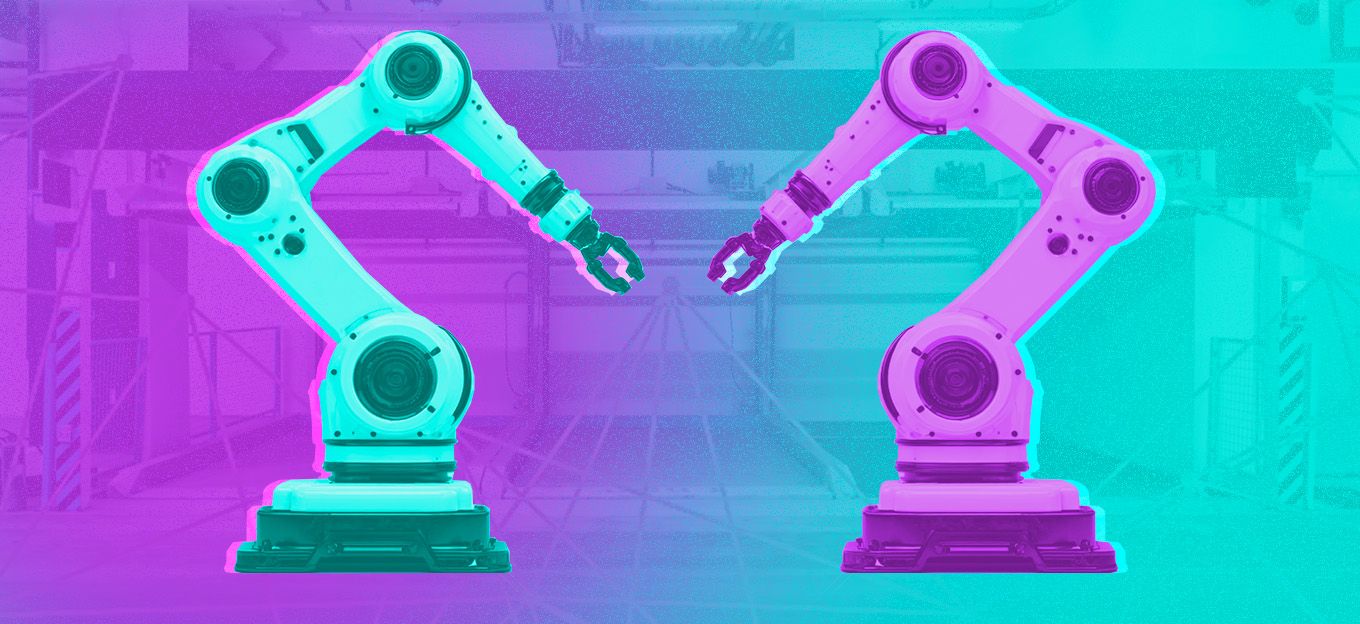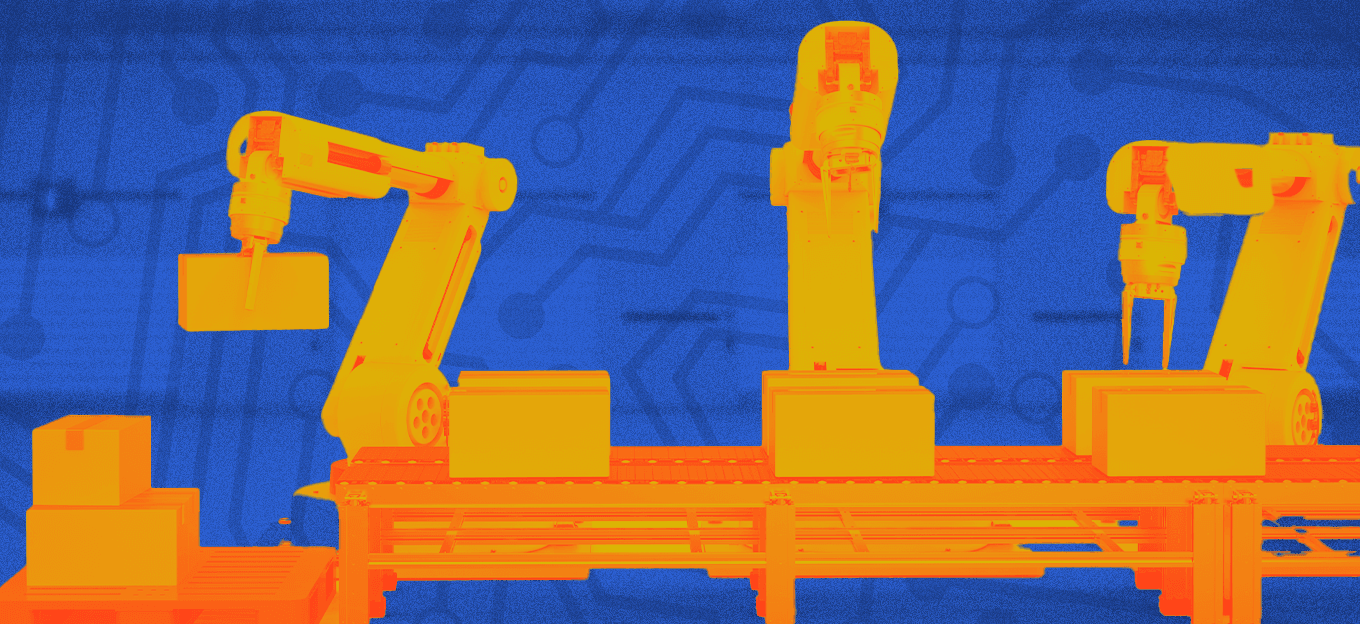How AI Will Transform Manufacturing
How AI Will Transform Manufacturing
- Last Updated: January 9, 2025
Rob McAveney
- Last Updated: January 9, 2025



In the coming years, artificial intelligence (AI) will transition from being a mix of hype and incremental advancements to a transformative force reshaping entire industries. Manufacturing will be no exception.
The Challenges of Modern Manufacturing
Companies across industries are under increasing pressure to deliver high-quality products faster than their competitors. At the same time, they must maintain cost efficiency while navigating the complexities of regulatory compliance.
This environment makes speed and adaptability essential. The ability to rapidly innovate, collect feedback, and refine product offerings to meet diverse market demands is now a core requirement. In many cases, shortening the time from concept to launch can determine success or failure.
AI is poised to play a pivotal role in overcoming these challenges. By streamlining processes and optimizing workflows, it will empower manufacturers to produce innovative products at an unparalleled pace and scale.
Revolutionizing Product Development
The product development and manufacturing process involves several steps where AI can take over time-consuming, repetitive tasks. This not only speeds up the overall process but also frees team members to focus on more value-added roles.
Some of these steps include:
- Simplifying Compliance: Complying with a wide range of global regulations and standards is a complex challenge. These regulations often vary across markets and industries and may sometimes conflict with one another. AI simplifies this process by scanning and analyzing requirements, recognizing any updates or changes, and ensuring compliance throughout development and manufacturing.
- Optimizing Design Processes: Model-based systems engineering (MBSE) has long been a cornerstone of product design. It helps companies address system constraints early in the development process. The integration of AI allows MBSE to extend across the entire product lifecycle. It enables multi-domain simulations and asynchronous problem-solving. This comprehensive approach empowers engineers to uncover and implement innovative, optimized solutions that might otherwise go unnoticed.
- Accelerating Simulations: Product simulations play a vital role in testing designs to ensure safety and performance. This is especially important in complex industries like automotive, medical devices, and aerospace. AI enhances this process by automating simulations, enabling rapid adjustments to input parameters, and delivering real-time feedback. It can also help identify any potential issues such as design errors or compliance gaps and suggest corrective actions. This accelerates development while improving the accuracy and quality of the final products.
- Streamlining Validation: Product validation is essential but can be highly time-consuming. This is particularly true for intricate designs. AI can automate validation processes and guide optimal product configurations. For example, AI can analyze customer preferences, assess product and development costs, and optimize potential features to recommend ways to expand or refine a product line. These recommendations align products more closely with market demands while improving efficiency and boosting profitability.
Strategic Integration: Key Steps for Success
The manufacturing industry is set to undergo a significant transformation driven by AI. To ensure success, companies must focus on several critical areas.
Successfully integrating AI into your organization requires adopting the following strategies:
- Establish a Unified Digital Thread: AI depends on interconnected data and processes to deliver accurate and actionable insights. A robust digital thread, seamlessly connecting information across the entire development and manufacturing lifecycle is crucial. Without this foundation, AI-driven decisions and outcomes will lack reliability and precision.
- Promote Organizational Alignment: Implementing AI often requires significant changes to workflows and a shift in the employee mindset. Engage employees early, provide comprehensive training, and emphasize how AI complements rather than replaces their expertise. Collaboration between employees and AI tools is the key to unlocking the full potential of AI.
- Focus on Scalability: To fully leverage the benefits of AI, it must be integrated across the organization. Scalable solutions that integrate seamlessly with existing systems and processes – and can adapt over time – are essential for delivering consistent, long-term value.
- Prioritize Data Security: AI’s effectiveness relies on access to large volumes of data. This dependency makes data security a critical concern. Robust measures must be in place to protect sensitive information, ensure compliance with regulations, and maintain trust across the product development and manufacturing lifecycle.
The Future of AI in Manufacturing
The adoption of AI in manufacturing will vary by industry. Some will progress more quickly than others. They will also focus on applying AI to different challenges.
Some may initially leverage AI to drive continuous product innovation and evolution. Others, however, might prioritize using it to navigate stricter regulatory requirements.
Over time, AI may become so prevalent that employees will use it intuitively, often without realizing it. This deep integration will drive the next wave of manufacturing innovation, enabling companies to deliver better products at a faster pace.
Organizations that adopt AI strategically—emphasizing integration, scalability, and collaboration—will position themselves to outpace the competition.
The Most Comprehensive IoT Newsletter for Enterprises
Showcasing the highest-quality content, resources, news, and insights from the world of the Internet of Things. Subscribe to remain informed and up-to-date.
New Podcast Episode

Moving Past the Pilot Phase in IoT and AI
Related Articles




